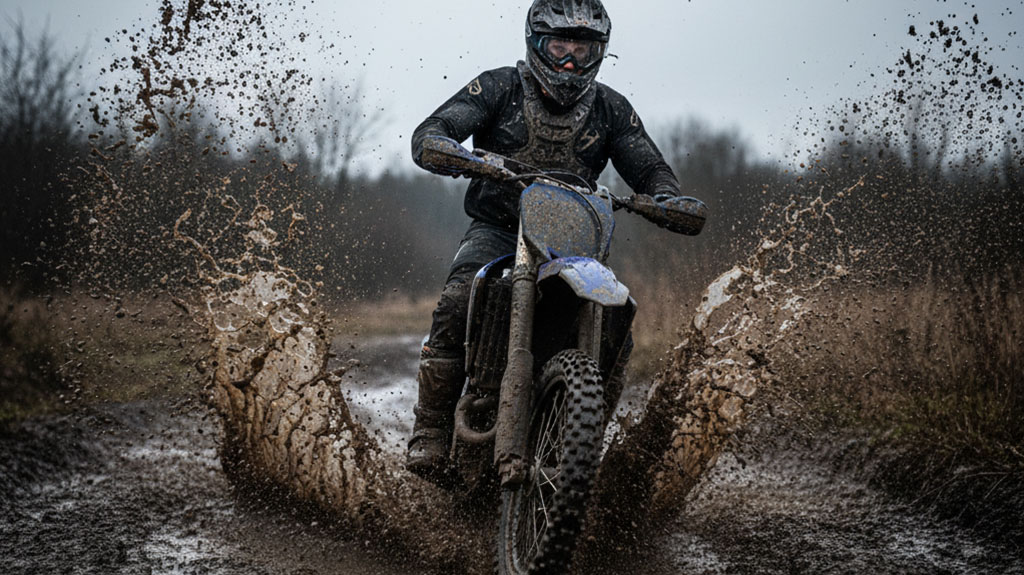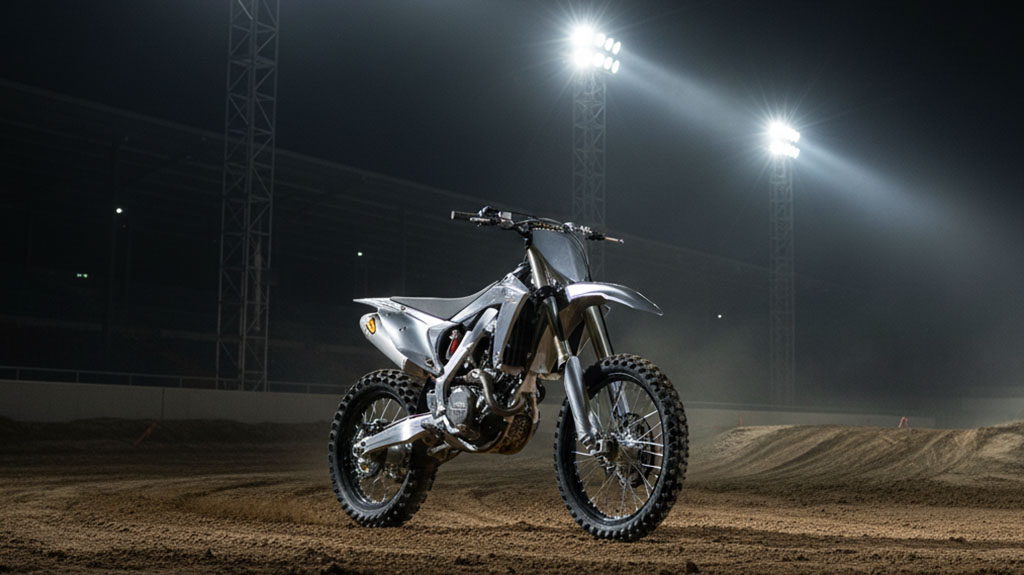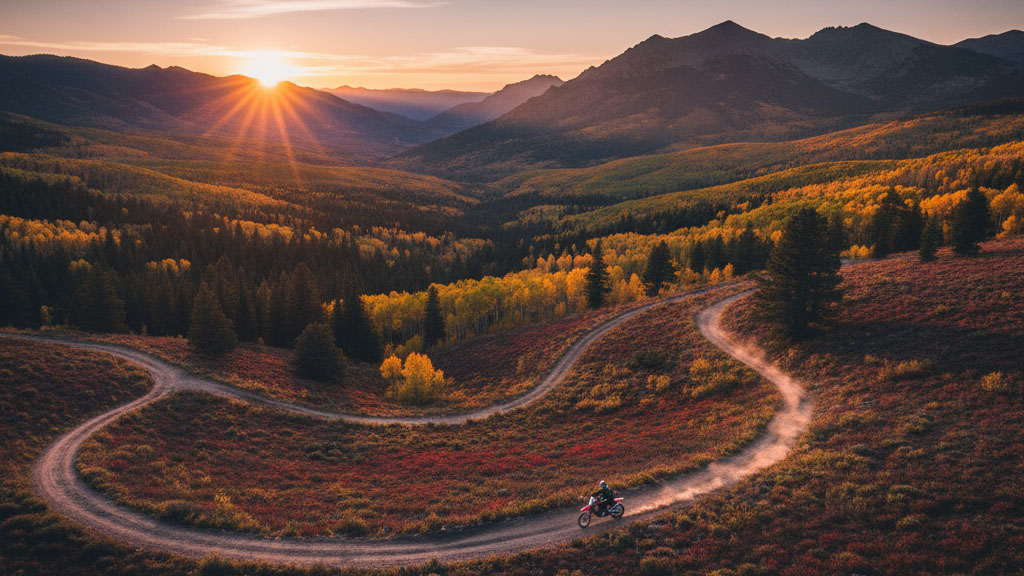Off-Road Use: Registration Requirements
In Colorado, dirt bikes used exclusively off-road are not required to be titled but must be registered with Colorado Parks and Wildlife (CPW). This applies to both residents and non-residents operating on public lands or designated OHV trails.
Registration Details:
- Colorado OHV Permit: Required for all off-highway vehicles (OHVs) operated on public lands or trails.
- Out-of-State OHVs: Must also display a current Colorado OHV permit when operating on designated OHV trails or routes.
Helmet and Eye Protection:
- Under 18: Operators and passengers under 18 are required to wear a DOT-approved helmet.
- All Riders: Eye protection is mandatory for all riders, regardless of age.
Age Restrictions:
- Under 10: Prohibited from operating OHVs on public roads.
- Ages 10–15: May operate OHVs on public roads only under the direct supervision of a person with a valid driver’s license.
Operation on Public Roads:
- Off-road vehicles, including dirt bikes, are generally prohibited from operating on public roads unless they have been modified to meet street-legal requirements and are registered accordingly. However, many counties and municipalities in Colorado have opened certain roads within their jurisdiction to OHV use.
Lighting Requirements:
- When operating during low-light conditions, the dirt bike must be equipped with a functioning headlamp and taillamp.

Street Use: Converting a Dirt Bike to Street-Legal
To operate a dirt bike on public roads in Colorado, it must be converted to meet street-legal requirements:
Conversion Steps:
- Required Equipment:
- Headlight (high and low beams)
- Taillight with brake light function
- Rear reflector
- Turn signals (front and rear)
- Rearview mirrors (one on each side)
- Horn audible from at least 200 feet
- DOT-approved tires
- Speedometer and odometer
- Muffler to comply with noise regulations
- Headlight (high and low beams)
- Title and Registration:
- Obtain a title from the Colorado Department of Revenue.
- Register the bike with the Colorado Department of Revenue.
- Submit the necessary forms and documentation to the Colorado Department of Revenue.
- Obtain a title from the Colorado Department of Revenue.
- Inspection:
- Have the bike inspected by a licensed inspection station to ensure it meets all safety and emissions standards.
- Have the bike inspected by a licensed inspection station to ensure it meets all safety and emissions standards.
- Insurance:
- Secure liability insurance for the bike.
- Secure liability insurance for the bike.
- License Plate:
- Affix a valid Colorado license plate to the bike in a visible and unobstructed manner.
Where You Can Ride
Off-Road:
- Private Property: Riding on private property is permitted with the landowner’s consent.
- Public Lands: Riding on public lands is allowed only in designated areas and trails. For example, the Rampart Range and Hartman Rocks Recreation Area offer designated OHV trails.
On-Road:
- Permitted Roads: Street-legal dirt bikes can operate on public roads, excluding interstate highways and limited-access highways.
- Crossing Roads: Off-road dirt bikes may cross public roads at a 90-degree angle during daylight hours, provided they come to a complete stop and yield to oncoming traffic.
Rider Requirements
- License: A valid driver’s license with a motorcycle endorsement is required to operate a street-legal dirt bike on public roads.
- Helmet Use: Riders under 18 must wear a DOT-approved helmet; helmet use is recommended for all riders.
- Insurance: Liability insurance is mandatory for all street-legal vehicles in Colorado, including dirt bikes.

Penalties for Non-Compliance
Failure to adhere to Colorado’s dirt bike laws can result in:
- Fines: Monetary penalties for unregistered or improperly equipped vehicles.
- Impoundment: Unauthorized vehicles may be impounded by law enforcement.
- License Suspension: Operating without a valid license or insurance can lead to suspension of driving privileges.
Relevant Colorado Laws and Agencies
- Colorado Parks and Wildlife (CPW): Handles OHV registrations and permits.
- Colorado Department of Revenue: Manages vehicle titling, registration, and licensing.
- Stay The Trail: Provides information on OHV regulations and trail maps.
Start your street-legal process today with Dirt Legal.



